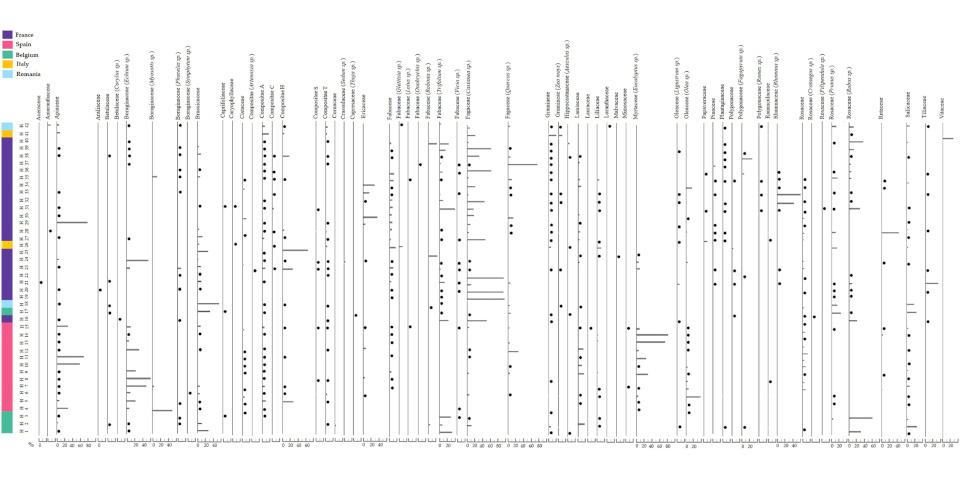Abstract
Honey adulteration generates low quality products on the market. The study aimed to find a simple, specific and less time-consuming method than standard melissopalynology only, for monitoring honey botanical and geographical origin. In this study 42 honey samples from different sources were examined for their botanical origin by using melissopalynology and their specific protein patterns by electrophoresis on SDS polyacrylamide gels (SDS-PAGE). The melissopalynological analysis consisted of counting all melliferous pollen, non-melliferous pollen and honeydew elements to identify the species of pollen present in each sample. The honey samples had predominant pollen from Apiaceae, Boraginaceae, Brassicaceae, Compositae H, Fabaceae (Trifolium sp.) and Fagaceae family. From the Fagaceae family, the most important species was Castanea sativa Mill., while the Boraginaceae was represented by Echium sp. and Myosotis sp. SDS-PAGE showed that the different origin honeys shared protein bands between 45 and 85 kDa (animal origin proteins, i.e. major royal jelly proteins, enzymes) and that specific proteins (presumably plant origin proteins) can be attributed to individual honey types. This study shows that the combination of melissopalynology and SDS-PAGE is a useful tool for modern discrimination between different kinds of honey, even without performing specific protein identification.
Mureşan CI, Cornea-Cipcigan M, Suharoschi R, Erler S, Mărgăoan R (2022) Honey botanical origin and honey-specific protein pattern: Characterization of some European honeys. LWT – Food Science and Technology, 154: 112883. DOI: 10.1016/j.lwt.2021.112883










